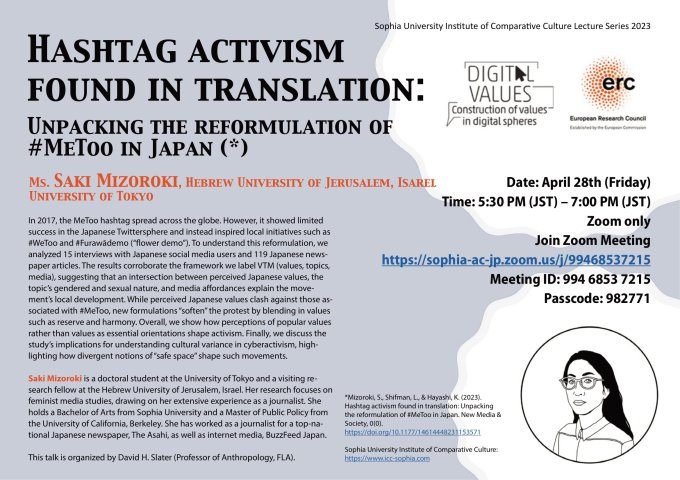![]() Estimated reading time: 4 minutes.
Estimated reading time: 4 minutes.
Do any of you reading this in Korea volunteer for a local feminist organization?
As a Western male feminist, or feminist ally if that’s your jam, frankly I’ve never seriously considered it. I’ve always just assumed my presence would be more awkward and complicated than helpful, and probably quite rightly so. There’s visa restrictions against non-Koreans participating in “political” activity too, even for permanent residents.
But are my assumptions correct? Or are they really just excuses?
Because I’ve recently become more interested in contemporary Korean feminist activism than ever. Perhaps, the day I get off my armchair and test those assumptions will come sooner than I think.
If you do ever see my bald head pop up on mutual Instas we follow then, blame Ito Shiori’s Black Box: The Memoir That Sparked Japan’s #MeToo Movement. Not just because because it well deserves its seminal title, but because I was shocked to learn just a few weeks later of the relative failure of that movement compared to South Korea’s. Why? What are the similarities and differences between #미투 and #KuToo? What mutual lessons do they offer for each other? I have to know.
Naturally then, I’ll be all over next Friday’s presentation below (note the open access accompanying article). I’ll also soon be cracking open my copy of Flowers of Fire by Hawon Jung (of course), but first will have to try the more specialized but older (2014) Practicing Feminism in South Korea: The women’s movement against sexual violence by Kyungja Jung while it’s hopefully still relevant.
If you have any other recommendations, please let me know. And I hope to hear your thoughts about next Friday’s presentation too! :)
Join Zoom Meeting https://sophia-ac-jp.zoom.us/j/99468537215 Meeting ID: 994 6853 7215 Passcode: 982771
In 2017, the MeToo hashtag spread across the globe. However, it showed limited success in the Japanese Twittersphere and instead inspired local initiatives such as #WeToo and #Furawādemo (“flower demo”). To understand this reformulation, we analyzed 15 interviews with Japanese social media users and 119 Japanese newspaper articles. The results corroborate the framework we label VTM (values, topics, media), suggesting that an intersection between perceived Japanese values, the topic’s gendered and sexual nature, and media affordances explain the movement’s local development. While perceived Japanese values clash against those associated with #MeToo, new formulations “soften” the protest by blending in values such as reserve and harmony. Overall, we show how perceptions of popular values rather than values as essential orientations shape activism. Finally, we discuss the study’s implications for understanding cultural variance in cyberactivism, highlighting how divergent notions of “safe space” shape such movements.
Saki Mizoroki is a doctoral student at the University of Tokyo and a visiting research fellow at the Hebrew University of Jerusalem, Israel. Her research focuses on feminist media studies, drawing on her extensive experience as a journalist. She holds a Bachelor of Arts from Sophia University and a Master of Public Policy from the University of California, Berkeley. She has worked as a journalist for a top-national Japanese newspaper, The Asahi, as well as internet media, BuzzFeed Japan.
This talk is organized by David H. Slater (Professor of Anthropology, FLA).
*Mizoroki, S., Shifman, L., & Hayashi, K. (2023). Hashtag activism found in translation: Unpacking the reformulation of #MeToo in Japan. New Media & Society, 0(0). https://doi.org/10.1177/14614448231153571
Flyer (PDF): Download from here
Related Posts:
- Why #MeToo Failed in Japan (Trinity Women & Gender Minorities Review)
- Japan’s Me Too Movement and ‘Comfort Women’ Issue: Part 2 – Intersection of History and the Translation of Culture (Research Institute on Japanese Military Sexual Slavery)
- In Japan, victims wary of #MeToo movement (Chicago Tribune)
- In Japan, Saying ‘Me Too’ Comes With Risks (Voice of America)
- In Just Two Minutes, My Eyes Were Opened to Why Resolving the Comfort Women Issue is so Necessary for Japan’s #MeToo
- If You Understand Korean, Please Don’t Miss Out: “After Me Too” (애프터 미투, 2021) is Screening October 6-9!
If you reside in South Korea, you can donate via wire transfer: Turnbull James Edward (Kookmin Bank/국민은행, 563401-01-214324)


